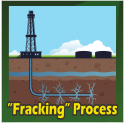Minimum Wage to 100k Year...Marcellus Shale Jobs
On Thursday, June 21, 2012
1 comments
The average income for a worker handling pipelines, maintaining a rig could be $100,000 a year. What are the qualifications? None, they will teach you. This is welcome news to many Pennsylvanians who have been out of work or unable to provide for their families as they are making just minimum wage.
One Dow Jones Newswire Report out of Pittsburgh reports on this subject --
"PITTSBURGH (Dow Jones)--Professor Byron Kohut helps hundreds of low-income adults land coveted jobs in the booming shale-gas industry in Pennsylvania. But only the tough need apply, he said".
"If they are not physically capable of working outside, in bad weather, dangerous conditions, I scare them out of drilling," said Kohut, who coordinates a natural-gas job-training course at Westmoreland County Community College, about 40 miles southwest of Pittsburgh. "It's not easy work," Kohut said, adding that people with backgrounds in agriculture, construction and mechanics have a better shot at getting in.
"The community college's course, part of a workforce-development program funded by a $4.6 million federal grant, prepares residents in Pennsylvania and neighboring states to compete for the torrent of jobs being generated by natural-gas companies tapping the prolific Marcellus Shale. The multi-state program, called ShaleNET, is trying to fix a mismatch between the rising number of jobs emerging with the shale-gas business in Pennsylvania, Ohio, West Virginia and New York, and the many unemployed, or low-paid, workers who can't be hired by the shale industry due to their lack of basic skills".
Deep within the layers of Marcellus Shale are large amounts of natural gas, it is an industry continuing to grow and demanding labor to help meet the demand. How many people does it require to drill a single well? The answer is about 400, and half DO NOT require a four-year degree. These jobs include general labor, heavy-equipment operators, and truck drivers.
"In about four weeks of training, the ShareNET program turns young farmers, construction workers, veterans and carpenters, among others, into certified gas-field workers who know the basics about drilling and controlling a well".
Don't get too excited, yet. The program's standards are high, so student's can compete with experienced works coming from states that have a long standing relationship and success within the energy industry.
According to the Dow Report, "the shale-gas industry has already helped the Pittsburgh region's March unemployment rate of 7.1% to best the nationwide rate of 8.4%, many of the higher-paid occupations--such as tool pushers or pump operators--were going to the newcomers from out of state, Fisher said. Many companies preferred the out-of-state workers because they already knew the basics about safety and were accustomed to working the 12-hour-per-day shifts that are common in the drilling industry, Fisher said".
Labor demand in the Marcellus Shale area is expected to continue to surge in coming years.
For instance, jobs for drill operators are expected to grow 84.9% to 2,674 this year from 1,446 in 2010. This compares to 2.6% estimated growth for all type of jobs state-wide in the same period.
One Dow Jones Newswire Report out of Pittsburgh reports on this subject --
"PITTSBURGH (Dow Jones)--Professor Byron Kohut helps hundreds of low-income adults land coveted jobs in the booming shale-gas industry in Pennsylvania. But only the tough need apply, he said".
"If they are not physically capable of working outside, in bad weather, dangerous conditions, I scare them out of drilling," said Kohut, who coordinates a natural-gas job-training course at Westmoreland County Community College, about 40 miles southwest of Pittsburgh. "It's not easy work," Kohut said, adding that people with backgrounds in agriculture, construction and mechanics have a better shot at getting in.
"The community college's course, part of a workforce-development program funded by a $4.6 million federal grant, prepares residents in Pennsylvania and neighboring states to compete for the torrent of jobs being generated by natural-gas companies tapping the prolific Marcellus Shale. The multi-state program, called ShaleNET, is trying to fix a mismatch between the rising number of jobs emerging with the shale-gas business in Pennsylvania, Ohio, West Virginia and New York, and the many unemployed, or low-paid, workers who can't be hired by the shale industry due to their lack of basic skills".
Deep within the layers of Marcellus Shale are large amounts of natural gas, it is an industry continuing to grow and demanding labor to help meet the demand. How many people does it require to drill a single well? The answer is about 400, and half DO NOT require a four-year degree. These jobs include general labor, heavy-equipment operators, and truck drivers.
"In about four weeks of training, the ShareNET program turns young farmers, construction workers, veterans and carpenters, among others, into certified gas-field workers who know the basics about drilling and controlling a well".
Don't get too excited, yet. The program's standards are high, so student's can compete with experienced works coming from states that have a long standing relationship and success within the energy industry.
According to the Dow Report, "the shale-gas industry has already helped the Pittsburgh region's March unemployment rate of 7.1% to best the nationwide rate of 8.4%, many of the higher-paid occupations--such as tool pushers or pump operators--were going to the newcomers from out of state, Fisher said. Many companies preferred the out-of-state workers because they already knew the basics about safety and were accustomed to working the 12-hour-per-day shifts that are common in the drilling industry, Fisher said".
Labor demand in the Marcellus Shale area is expected to continue to surge in coming years.
For instance, jobs for drill operators are expected to grow 84.9% to 2,674 this year from 1,446 in 2010. This compares to 2.6% estimated growth for all type of jobs state-wide in the same period.







